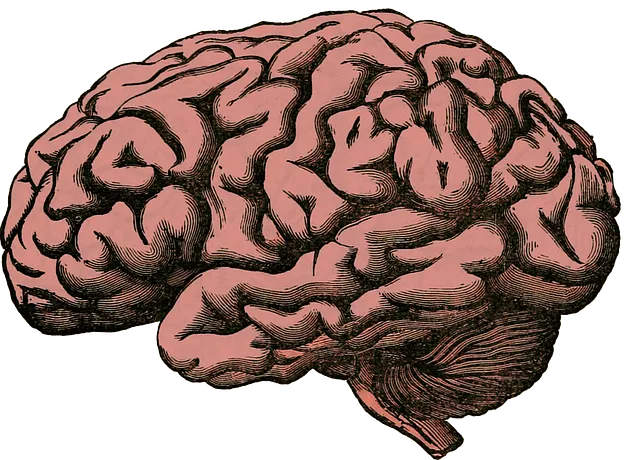The Kaiser Permanente Mental Health Access Center Englewood employs a comprehensive risk assessment process for patient safety and quality care. This involves analyzing medical histories, psychological evaluations, and social factors to identify risks like suicidal ideation. Their approach includes tailored interventions like Trauma Support Services, prevention strategies (e.g., Mental Wellness Podcast Series), and mental health education for both clients and professionals, fostering a supportive recovery environment.
Mental health professionals are on the front line, confronting complex client risks daily. This article explores comprehensive risk assessment strategies used at the Kaiser Permanente Mental Health Access Center in Englewood, highlighting key components for identifying and mitigating potential hazards.
We’ll delve into best practices for creating a safe environment, promoting resilience, and ensuring evidence-based interventions to protect both clients and providers. Understanding risk assessment is vital for optimizing care within healthcare organizations like Kaiser Permanente.
- Understanding Risk Assessment in Mental Health Practices
- Key Components of a Comprehensive Risk Assessment at Kaiser Permanente Mental Health Access Center Englewood
- Strategies for Effective Risk Management and Mitigation for Mental Health Professionals
Understanding Risk Assessment in Mental Health Practices

Risk assessment is a cornerstone in mental health practices, crucial for ensuring patient safety and quality care, especially at centers like the Kaiser Permanente Mental Health Access Center Englewood. It involves a systematic process of identifying, analyzing, and mitigating potential risks associated with providing psychological services. This comprehensive approach encompasses various factors, from individual patient vulnerabilities to broader systemic issues.
At the Kaiser Permanente Mental Health Access Center Englewood, risk assessment is integrated into every stage of care delivery. This includes initial screening, where professionals use validated tools to gauge risk levels, followed by a detailed evaluation of patients’ historical and current experiences. These assessments help in tailoring interventions, ensuring that services like Trauma Support Services align with individual needs. Furthermore, understanding these risks informs the development of strategies for prevention and early intervention, complementing initiatives such as the Mental Wellness Podcast Series Production, which promotes mental health awareness and coping mechanisms.
Key Components of a Comprehensive Risk Assessment at Kaiser Permanente Mental Health Access Center Englewood

At the Kaiser Permanente Mental Health Access Center Englewood, a comprehensive risk assessment is an integral part of patient care. This process involves several key components designed to ensure the safety and well-being of both clients and mental health professionals. The assessment begins with a thorough review of the client’s medical history, psychological evaluations, and any previous treatment plans or interventions. This step helps identify potential risks, such as suicidal ideation, self-harm, or re-traumatization, which are common challenges in emotional healing processes.
The center prioritizes a multi-faceted approach that incorporates not only clinical assessments but also the client’s social and environmental factors. This includes evaluating their support systems, living situations, and any stressors that might contribute to anxiety relief or exacerbate existing mental health conditions. Additionally, the Mental Health Education Programs Design at Kaiser Permanente Englewood is instrumental in empowering clients with knowledge about their disorders, coping strategies, and self-care practices. This proactive measure not only supports the emotional healing processes but also enables individuals to actively participate in their recovery journey.
Strategies for Effective Risk Management and Mitigation for Mental Health Professionals

Mental health professionals face unique challenges when it comes to risk management due to the sensitive nature of their work. At the Kaiser Permanente Mental Health Access Center in Englewood, strategies for effective risk mitigation focus on a multifaceted approach. Firstly, establishing robust communication channels ensures early identification of potential risks and allows for prompt intervention. This includes regular staff meetings, peer support groups, and open dialogue with clients about their emotional well-being.
Additionally, implementing mental wellness journaling exercises can serve as a powerful tool. Encouraging professionals to reflect on their experiences, emotions, and stress factors enables them to develop coping mechanisms and maintain positive thinking. Such practices foster self-awareness and resilience, which are essential in navigating the demanding landscape of mental health care. Guidance on risk assessment is paramount, ensuring that professionals are equipped with the knowledge to recognize signs of burnout, stress, or potential hazards within their practice settings.
Mental health professionals, like those at the Kaiser Permanente Mental Health Access Center Englewood, must consistently employ thorough risk assessment strategies. By understanding and implementing key components of risk assessment, such as identifying vulnerabilities, evaluating potential hazards, and developing mitigation plans, they can ensure a safe environment for both patients and practitioners. Effective risk management is not just about compliance; it’s about fostering resilient practices that promote positive mental health outcomes while minimizing risks.






